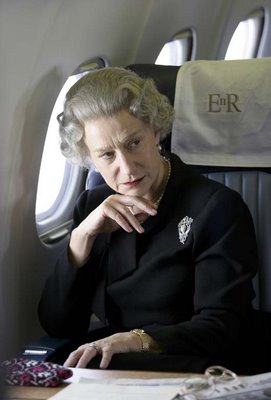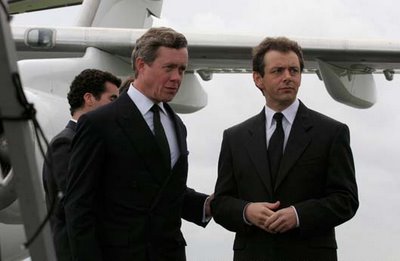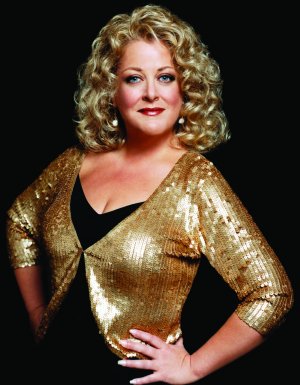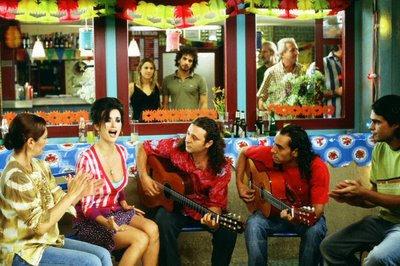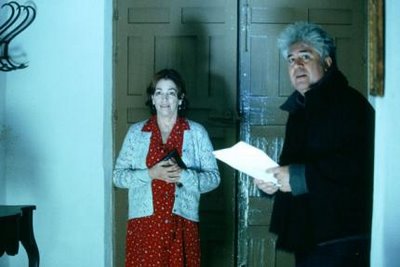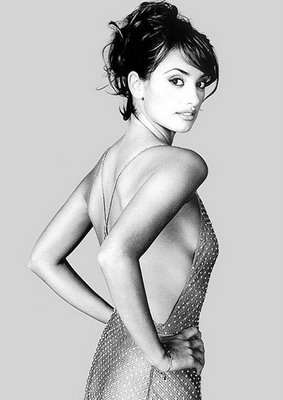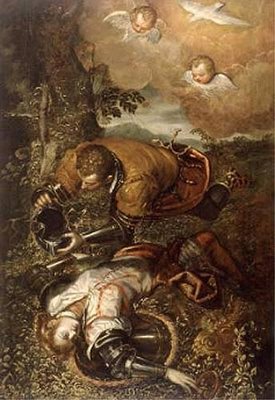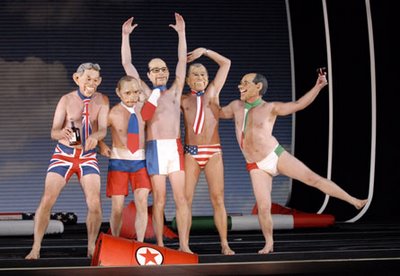Last month | Next monthClassical Month in Washington is a monthly feature that appears on the first of the month. If there are concerts you would like to see included on our schedule, send your suggestions by e-mail (ionarts at gmail dot com). Happy listening!February 1, 2007 (Thu)
2 pmBaltimore Symphony OrchestraMusic by Diamond, Britten, Tchaikovsky
Meyerhoff Symphony Hall (Baltimore, Md.)
Review -- Tim Smith (
Baltimore Sun, February 3)
February 1, 2007 (Thu)
7 pmNational Symphony OrchestraWith violinist Chee-Yun
Kennedy Center Concert Hall
Review -- Jens F. Laurson (
Ionarts, February 2)
February 1, 2007 (Thu)
7:30 pmFrédéric Yonnet, harmonicaMansion at Strathmore
February 2, 2007 (Fri)
1:30 pmNational Symphony OrchestraWith violinist Chee-Yun
Kennedy Center Concert Hall
February 2, 2007 (Fri)
7:30 pmVerdi, FalstaffKirov Opera
Kennedy Center Opera House
Review -- Jens F. Laurson (
Ionarts, February 4)
February 2, 2007 (Fri)
7:30 pmBritten,
The Rape of LucretiaPeabody Chamber Opera
Baltimore Theater ProjectReview -- Charles T. Downey (
Ionarts, February 4)
February 2, 2007 (Fri)
8 pmMinetti QuarttetEmbassy SeriesEmbassy of Austria
Review -- Jens F. Laurson (
Ionarts, February 6)
February 2, 2007 (Fri)
8 pmKing's SingersMusic Center at Strathmore
February 2, 2007 (Fri)
8 pmSt. Lawrence String QuartetWith soprano Heidi Grant Murphy
Clarice Smith Performing Arts Center (College Park, Md.)
February 2, 2007 (Fri)
8 pmChamber Music Series: Osman Kivrak and FriendsKatzen Arts Center, American University
February 3, 2007 (Sat)
11 amBaltimore Symphony Orchestra (Casual Concert)
Music by Britten, Tchaikovsky
Meyerhoff Symphony Hall (Baltimore, Md.)
February 3, 2007 (Sat)
3 pmLully, ArmideOpera Lafayette
Clarice Smith Performing Arts Center (College Park, Md.)
Review -- Jens F. Laurson (
Ionarts, February 7)
February 3, 2007 (Sat)
5 pm21st Century Consort: Error of the MoonReynolds Center for American Art and Portraiture
February 3, 2007 (Sat)
7:30 pmVerdi, FalstaffKirov Opera
Kennedy Center Opera House
February 3, 2007 (Sat)
8 pmMinetti QuarttetEmbassy SeriesEmbassy of Austria
February 3, 2007 (Sat)
8 pmNational Symphony OrchestraWith violinist Chee-Yun
Kennedy Center Concert Hall
February 4, 2007 (Sun)
2 pmBaltimore Symphony OrchestraFamily Concert: Bring on the Brass
Meyerhoff Symphony Hall (Baltimore, Md.)
February 4, 2007 (Sun)
2 pmArt Song Discovery SeriesVocal Arts Society
Glenview Mansion (Rockville, Md.)
February 4, 2007 (Sun)
3 pmSt. Olaf ChoirWith violist Charles Gray
Music Center at Strathmore
February 4, 2007 (Sun)
3 pmBritten,
The Rape of LucretiaPeabody Chamber Opera
Baltimore Theater ProjectFebruary 4, 2007 (Sun)
3 pmShostakovich, Lady Macbeth of Mtsensk (concert performance)
Kirov Opera, with Valery Gergiev
Kennedy Center Concert Hall
Review -- Jens F. Laurson (
Ionarts, February 8)
February 4, 2007 (Sun)
4 pmOrpheus Singers: “With its Sweet Air” [FREE]
Phillips CollectionFebruary 4, 2007 (Sun)
4 pmViviane Hagner (violin) and Tatiana Goncharova (piano)
Foundation for the Advancement of Education in the SciencesCongregation Beth-El (8215 Old Georgetown Road, Bethesda, Md.)
February 4, 2007 (Sun)
6:30 pmRoger Chase (viola) and Michiko Otaki (piano) [FREE]
National Gallery of ArtFebruary 5, 2007 (Mon)
7:30 pmShostakovich String QuartetsEmerson Quartet
Kennedy Center Terrace Theater
Review -- Jens F. Laurson (
Ionarts, February 6)
February 6, 2007 (Tue)
12:10 pmWashington Bach Consort:
Noontime Cantata Series [FREE]
Fantasia and Fugue in C Minor, BWV 537 (Eric Plutz, organ)
Komm, du süße Todesstunde (BWV 161)
Church of the Epiphany (13th and G Streets NW)
February 6, 2007 (Tue)
7 pmAppreciating Chamber Music through Performance: Beethoven's Archduke TrioMembers of Garth Newel Piano Quartet
Corcoran Gallery of Art
February 6, 2007 (Tue)
7:30 pmShostakovich String QuartetsEmerson Quartet
Kennedy Center Terrace Theater
Review -- Jens F. Laurson (
Ionarts, February 10)
February 7, 2007 (Wed)
7 pmJose Franch-Ballester, clarinet
Embassy Series and Young Concert Artists
Residence of the Spanish Ambassador (2300 Foxhall Road NW)
February 7, 2007 (Wed)
7:30 pmShostakovich String Quartets (and one piano quartet)
Emerson Quartet with pianist Joseph Kalichstein
Kennedy Center Terrace Theater
Review -- Jens F. Laurson (
Ionarts, February 10)
February 7, 2007 (Wed)
7:30 pmArianna Zukerman (soprano) with Eugenia Zukerman (flute) [FREE]
National Museum of Women in the Arts
Review -- Ronni Reich (
Washington Post, February 9)
February 7, 2007 (Wed)
7:30 pmWashington Concert Opera
Kreeger MuseumFebruary 8, 2007 (Thu)
7 pmNational Symphony OrchestraWith Iván Fischer, conductor (all-Mendelssohn program)
Kennedy Center Concert Hall
Review -- Jens F. Laurson (
Ionarts, February 9)
February 8, 2007 (Thu)
7:30 pmSusan Bickley (mezzo-soprano) and Stephan Loges (baritone)With pianist Roger Vignoles (Shakespeare in Washington)
Vocal Arts SocietyKennedy Center Terrace Theater
Review -- Daniel Ginsberg (
Washington Post, February 10)
February 8, 2007 (Thu)
8 pmBaltimore Symphony OrchestraMardi Gras with Preservation Hall Jazz Band
Music Center at Strathmore
February 9, 2007 (Fri)
7 pmNational Symphony OrchestraWith Iván Fischer, conductor (all-Mendelssohn program)
Kennedy Center Concert Hall
February 9, 2007 (Fri)
7:30 pmEinar Røttingen, piano
Embassy SeriesResidence of the Norwegian Ambassador (3401 Massachusetts Avenue NW)
February 9, 2007 (Fri)
7:30 pmMozart,
Così fan tutteWashington National Opera, Domingo-Cafritz Young Artists
Generation O Special Event
Washington National Opera Studio (6925 Willow Street NW)
Review -- Michael Lodico (
Ionarts, February 11)
February 9, 2007 (Fri)
8 pmAlexander String QuartetMusic by Mozart, Peterson, and Beethoven
Corcoran Gallery of Art
February 9, 2007 (Fri)
8 pm (lecture at 7 pm)
A New Songbook (music by Ades, Del Tredici, Golijov, and others)
Phyllis Bryn-Julson (soprano), Leah Inger, Bonnie Lander, Andrea Moore (sopranos), Ryan Scott Ebright (baritone)
Evolution Contemporary Music Series
An die Musik LIVE (Baltimore, Md.)
February 9, 2007 (Fri)
8 pmBaltimore Symphony OrchestraWith Preservation Hall Jazz Band: Mardi Gras
Meyerhoff Symphony Hall (Baltimore, Md.)
February 9, 2007 (Fri)
8 pmHandel, AgrippinaVirginia Opera
George Mason University Center for the Arts (Fairfax, Va.)
Review -- Charles T. Downey (
Ionarts, February 11)
February 9, 2007 (Fri)
8 pmParis Piano TrioWith violist Bruno Pasquier
The Barns at Wolf Trap
February 9, 2007 (Fri)
8 pmMusic of Daniel Bernard Roumain [FREE]
Library of CongressReview -- Grace Jean (
Washington Post, February 12)
February 10, 2007 (Sat)
8 pmWoodley Ensemble (music by Richefort and modern French composers)
St. Mark's Episcopal Church (Capitol Hill)
Review -- Sarah Hoover (
Washington Post, February 12)
February 10, 2007 (Sat)
7:30 pmHappy Birthday, MozartUniversity of Maryland School of Music
Clarice Smith Performing Arts Center (College Park, Md.)
February 10, 2007 (Sat)
7:30 pmLeft Bank Concert Society: Divas, Tempestuous and Divine
With Linda Mabbs (soprano) and Dolores Ziegler (mezzo-soprano)
Kennedy Center Terrace Theater
Review -- Cecelia Porter (
Washington Post, February 12)
February 10, 2007 (Sat)
7:30 pmFrom Shakespeare to the Sephardim
Barbara Hollinshead, mezzo-soprano and Howard Bass, lutenist
Presented by
Bach SinfoniaWoodside United Methodist Church (Silver Spring, Md.)
February 10, 2007 (Sat)
8 pmOrlando Consort: Food, Wine, and Song
Music by Compere and Robert Morton
Dumbarton ConcertsDumbarton Church
February 10, 2007 (Sat)
8 pmNational Symphony OrchestraWith Iván Fischer, conductor (all-Mendelssohn program)
Kennedy Center Concert Hall
February 10, 2007 (Sat)
8 pmBaltimore Symphony OrchestraWith Preservation Hall Jazz Band: Mardi Gras
Meyerhoff Symphony Hall (Baltimore, Md.)
February 10, 2007 (Sat)
8 pmNational PhilharmonicWith pianist Carter Brey
Music by Adams, Elgar, Stravinsky
Music Center at Strathmore
February 10, 2007 (Sat)
8 pmAxelrod QuartetRenwick Gallery
February 11, 2007 (Sun)
2 pmHandel, AgrippinaVirginia Opera
George Mason University Center for the Arts (Fairfax, Va.)
February 11, 2007 (Sun)
2 pmMozart,
Così fan tutteWashington National Opera, Domingo-Cafritz Young Artists
Washington National Opera Studio (6925 Willow Street NW)
February 11, 2007 (Sun)
2 and 4 pmNational Symphony Orchestra Children's ConcertWith Iván Fischer, conductor
Kennedy Center Concert Hall
Review -- Tim Page (
Washington Post, February 12)
February 11, 2007 (Sun)
3 pmLove You Madly! (music by Duke Ellington and others)
Washington Musica VivaAtlas Performing Arts CenterFebruary 11, 2007 (Sun)
3 pmBaltimore Symphony OrchestraWith Preservation Hall Jazz Band: Mardi Gras
Meyerhoff Symphony Hall (Baltimore, Md.)
February 11, 2007 (Sun)
3 pmHappy Birthday, MozartUniversity of Maryland School of Music
Clarice Smith Performing Arts Center (College Park, Md.)
February 11, 2007 (Sun)
3 pmWashington Metropolitan PhilharmonicWith Elisabeth Adkins (Beethoven, Violin Concerto)
Bishop Ireton High School (201 Cambridge Road, Alexandria, Va.)
Review -- Mark J. Estren (
Washington Post, February 13)
February 11, 2007 (Sun)
3 pmShape Note SingingLed by John W. del Re
Mansion at Strathmore
February 11, 2007 (Sun)
4 pmAccordia (dir. Philip Cave), “Orpheus and his Lute” [FREE]
Phillips CollectionFebruary 11, 2007 (Sun)
4 pmTerrence Wilson, piano [FREE]
National Academy of Sciences (2100 C Street NW)
Review -- Grace Jean (
Washington Post, February 13)
February 11, 2007 (Sun)
4:30 pmContemporary Music Forum, with Robert Baker (tenor)
Corcoran Gallery of Art
February 11, 2007 (Sun)
5 pmChamber Concert
Members of
Capital City SymphonyBethesda Presbyterian Church (Bethesda, Md.)
February 11, 2007 (Sun)
6:30 pmTill Fellner (piano) [FREE]
Music by J. S. Bach, Beethoven, Kurtág, and Schubert
National Gallery of ArtReview -- Charles T. Downey (
Ionarts, February 13)
February 11, 2007 (Sun)
7 pmRichard Goode, pianoWPASMusic Center at Strathmore
Review -- Jens F. Laurson (
Ionarts, February 17)
February 11, 2007 (Sun)
7:30 pmAxelrod QuartetRenwick Gallery
February 13, 2007 (Tue)
7:30 pmAtlantic String QuartetMusic Center at Strathmore
Review -- Michael Lodico (
Ionarts February 15)
February 15, 2007 (Thu)
7 pmNational Symphony OrchestraWith Renaud and Gautier Capuçon
Kennedy Center Concert Hall
Review -- Jens F. Laurson (
Ionarts, February 16)
February 15, 2007 (Thu)
7:30 pmWagner in Switzerland: Genius in ResidenceLecture by Prof. Donald Crosby
Wagner Society of Washington, D.C.George Washington University, Funger Hall (2201 G Street NW)
February 15, 2007 (Thu)
8 pmBaltimore Symphony OrchestraWith Orli Shaham, piano (Messiaen,
Oiseaux exotiques)
Music by Wagner, Debussy, Berlioz
Meyerhoff Symphony Hall (Baltimore, Md.)
Review -- Ronni Reich (
Washington Post, February 17)
February 15, 2007 (Thu)
8 pmBenjamin Bagby's
Beowulf [FREE]
Library of CongressReview -- Robert Battey (
Washington Post, February 17)
February 16, 2007 (Fri)
12 noonFriday Morning Music Club Orchestra
Sumner School
Review -- Cecelia Porter (
Washington Post, February 19)
February 16, 2007 (Fri)
7 pmNational Symphony OrchestraWith Renaud and Gautier Capuçon
Kennedy Center Concert Hall
February 16, 2007 (Fri)
8 pmCuarteto CasalsFriends of Music SeriesDumbarton Oaks
Review -- Charles T. Downey (
Ionarts, February 19)
February 16, 2007 (Fri)
8 pmBaltimore Symphony OrchestraWith Orli Shaham, piano (Messiaen,
Oiseaux exotiques)
Music by Wagner, Debussy, Berlioz
Meyerhoff Symphony Hall (Baltimore, Md.)
February 16, 2007 (Fri)
8 pmRobert Mann and Geoff Nutall (violins), Nicholas Mann (viola), and Bonnie Hampton (cello) [FREE]
Music by Mann, Mozart, and Bartók (6th quartet)
Library of CongressReview -- Joan Reinthaler (
Washington Post, February 19)
February 17, 2007 (Sat)
4 pmJean-Yves Thibaudet, pianoMusic by Chopin, Liszt, Messiaen
WPASKennedy Center Concert Hall
Review -- Jens F. Laurson (
Ionarts, February 19)
February 17, 2007 (Sat)
8 pmWashington Bach ConsortSolo soprano cantatas, with Elizabeth Futral
Rachel M. Schlesinger Concert Hall and Arts Center
February 17, 2007 (Sat)
8 pmNational Symphony OrchestraWith Renaud and Gautier Capuçon
Kennedy Center Concert Hall
February 17, 2007 (Sat)
8 pmCuarteto CasalsFriends of Music SeriesDumbarton Oaks
February 17, 2007 (Sat)
8 pmUniversity of Maryland Symphony and ChoirsStravinsky's Symphony of Psalms; works by Brahms
Clarice Smith Performing Arts Center (College Park, Md.)
February 18, 2007 (Sun)
3 pmUnited States Air Force BandWith pianist Abbey Simon and Conductor Emeritus Col (Ret) Arnald D. Gabriel
DAR Constitution Hall
February 18, 2007 (Sun)
4 pmSilver-Garburg Duo (piano, four hands) [FREE]
Phillips CollectionFebruary 18, 2007 (Sun)
4 pmMarina Piccinini (flute) and Emanuele Segre (guitar)
Foundation for the Advancement of Education in the SciencesCongregation Beth-El (8215 Old Georgetown Road, Bethesda, Md.)
February 18, 2007 (Sun)
5 pmWashington Metropolitan PhilharmonicWith Elisabeth Adkins (Beethoven, Violin Concerto)
Church of the Epiphany (1317 G Street NW)
February 18, 2007 (Sun)
6:30 pmMark Kaplan (violin) and Yael Weiss (piano) [FREE]
Music by Carter, Feigin, and Sessions
Sixty-second American Music Festival
National Gallery of ArtReview -- Charles T. Downey (
Ionarts, February 20)
February 18, 2007 (Sun)
7 pmCuarteto CasalsFriends of Music SeriesDumbarton Oaks
February 20, 2007 (Tue)
7:30 pmAmedeo Modigliani QuartetWPASKennedy Center Terrace Theater
Review -- Robert Battey (
Washington Post, February 22)
February 21, 2007 (Wed)
7:30 pmProkofiev, CinderellaBolshoi Ballet
Kennedy Center Opera House
Review -- Jens F. Laurson (
Ionarts, February 22)
February 21, 2007 (Wed)
8 pmVenice Baroque Orchestra (Andrea Marcon, director) [FREE]
With violinist Giuliano Carmignola
Music by Vivaldi (plus one piece by Tartini)
Library of CongressFebruary 21, 2007 (Wed)
8 pmDale Underwood, saxophone [FREE]
Clarice Smith Performing Arts Center (College Park, Md.)
February 22, 2007 (Thu)
7 pmNational Symphony OrchestraWith violinist Janine Jansen
Kennedy Center Concert Hall
Review -- Jens F. Laurson (
Ionarts, February 23)
February 22, 2007 (Thu)
7:30 pmProkofiev, CinderellaBolshoi Ballet
Kennedy Center Opera House
February 22, 2007 (Thu)
8 pmUniversity of Maryland Dance DepartmentWaylon Anderson choreography set to Stravinsky's
Rite of SpringClarice Smith Performing Arts Center (College Park, Md.)
February 22, 2007 (Thu)
8 pmBaltimore Symphony Orchestra (with Marin Alsop)
Music by Philip Glass, with film by Frans Lanting
Music Center at Strathmore
Review -- Charles T. Downey (
Ionarts, February 23)
February 23, 2007 (Fri)
1:30 pmNational Symphony OrchestraWith violinist Janine Jansen
Kennedy Center Concert Hall
February 23, 2007 (Fri)
7 pmRebecca Webber (soprano) and Douglas A. Beck (piano) [FREE]
Arlington Arts Center (Arlington, Va.)
February 23, 2007 (Fri)
7:30 pmProkofiev, CinderellaBolshoi Ballet
Kennedy Center Opera House
February 23, 2007 (Fri)
8 pmMarc Hantaï (flute), Alessandro Moccia (violin), Alix Verzier (cello), and Jérôme Hantaï (fortepiano) [FREE]
Music by J. C. Bach, Haydn, Mozart
Library of CongressReview -- Michael Lodico (
Ionarts, February 26)
February 23, 2007 (Fri)
8 pmBaltimore Symphony Orchestra (with Marin Alsop)
Music by Philip Glass, with film by Frans Lanting
Meyerhoff Symphony Hall (Baltimore, Md.)
February 23, 2007 (Fri)
8 pmUniversity of Maryland Dance DepartmentWaylon Anderson choreography set to Stravinsky's
Rite of SpringClarice Smith Performing Arts Center (College Park, Md.)
February 23, 2007 (Fri)
8 pmAndreas Haefliger, piano
Swiss Ambassador's Residence
Review -- Jens F. Laurson (
Ionarts, February 27)
February 23, 2007 (Fri)
8 pmVivaldi, Four SeasonsTafelmusik, with Chinese pipa, Indian serenghi, blah, blah, blah
Clarice Smith Performing Arts Center (College Park, Md.)
Review -- Robert Battey (
Washington Post, February 26)
February 24, 2007 (Sat)
1 pmMetropolitan Opera CouncilMiddle Atlantic Region auditions
Kennedy Center Terrace Theater
February 24, 2007 (Sat)
1:30 and 7:30 pmMinkus, Don QuixoteBolshoi Ballet
Kennedy Center Opera House
February 24, 2007 (Sat)
6 pmEmerson String QuartetQuartets by Haydn, Ives, Mendelssohn
National Museum of Natural History
February 24, 2007 (Sat)
7:30 pmMusic from Japan [FREE]
Junko Tahara, biwa (lute); Kohei Nishikawa, flutes; Akikuni Takahashi, percussion
Freer Gallery of ArtFebruary 24, 2007 (Sat)
8 pmBaltimore Symphony Orchestra (with Marin Alsop)
Music by Philip Glass, with film by Frans Lanting
Meyerhoff Symphony Hall (Baltimore, Md.)
February 24, 2007 (Sat)
8 pmNational Symphony OrchestraWith violinist Janine Jansen
Kennedy Center Concert Hall
February 24, 2007 (Sat)
8 pmBerlin Piano Quartet
Music by Fauré, Schumann, Mendelssohn
Dumbarton ConcertsDumbarton Church
Review -- Michael Lodico (
Ionarts, February 27)
February 24, 2007 (Sat)
8 pmJames Stern, violin [FREE]
Solo repertory for violin
Clarice Smith Performing Arts Center (College Park, Md.)
February 24, 2007 (Sat)
8 pmSound the Trumpets: Music for a Royal OccasionKatzen Arts Center, American University
February 25, 2007 (Sun)
1:30 and 7:30 pmMinkus, Don QuixoteBolshoi Ballet
Kennedy Center Opera House
February 25, 2007 (Sun)
3 pmBaltimore Symphony Orchestra (with Marin Alsop)
Music by Philip Glass, with film by Frans Lanting
Meyerhoff Symphony Hall (Baltimore, Md.)
February 25, 2007 (Sun)
3 pmSound the Trumpets: Music for a Royal OccasionKatzen Arts Center, American University
February 25, 2007 (Sun)
3 pmUnited States Air Force BandWith the Empire Brass
DAR Constitution Hall
February 25, 2007 (Sun)
4 pmStephen Beus (piano) [FREE]
Phillips CollectionFebruary 25, 2007 (Sun)
6:30 pmAlan Feinberg (piano) [FREE]
Music by Beiderbecke, Cage, Feldman, Ives, and Nancarrow
Sixty-second American Music Festival
National Gallery of Art (East Building Auditorium)
Review -- Andrew Lindemann Malone (
Washington Post, February 27)
February 25, 2007 (Sun)
8 pmFranklin Cox, cello [FREE]
New music
Clarice Smith Performing Arts Center (College Park, Md.)
February 26, 2007 (Mon)
12:10 pmSalem Academy Glee Club [FREE]
National Museum of Women in the Arts
February 26, 2007 (Mon)
7:30 pmChoral Arts Society of Washington (French chansons) [FREE]
La Maison FrançaiseFebruary 26, 2007 (Mon)
8 pmElisabeth Adkins (violin) and Edward Newman (piano) [FREE]
Music by Debussy, Strauss, and Rozsa
Clarice Smith Performing Arts Center (College Park, Md.)
February 27, 2007 (Tue)
7:30 pmJoyce DiDonato (mezzo-soprano) and Julius Drake (piano)Vocal Arts SocietyKennedy Center Terrace Theater
Review -- Stephen Brookes (
Washington Post, March 1)
February 27, 2007 (Tue)
7:30 pmWashington Musica VivaMusic by Smetana, Martinů, Nelhybel, and Brahms
Embassy of the Czech Republic
February 28, 2007 (Wed)
7:30 pmBalanchine, Midsummer Night's DreamNew York City Ballet
Kennedy Center Opera House
February 28, 2007 (Wed)
8 pmArtis-Quartett Wien [FREE]
Music by Mendelssohn, Beethoven, French
Library of CongressFebruary 28, 2007 (Wed)
8 pmChris Gekker, trumpet [FREE]
Classical and jazz program
Clarice Smith Performing Arts Center (College Park, Md.)
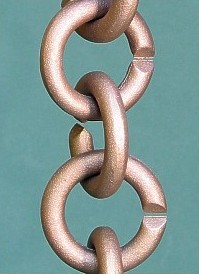 Here is your regular Sunday dosage of interesting items, from Blogville and beyond:
Here is your regular Sunday dosage of interesting items, from Blogville and beyond: